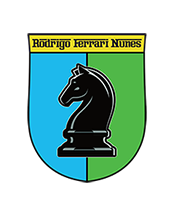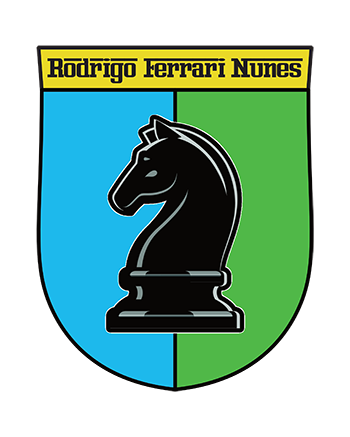 The spread of the colonial cosmology goes hand in hand with the popularization of stereotypes of indigenous peoples, the progressive stealing of their lands, their confinement into reservations, their forced incarceration into residential schools, and marginalization. It’s crucial to recognize that most individuals are born under the pervasive influence of the colonial cosmology and may never question its validity throughout their lifetimes. This makes the work of critically examining and challenging this paradigm all the more important, as it entails stepping into uncharted territory, taking risks, and daring to question the established narratives that have long shaped society’s perceptions. This endeavor is bold and rare, as it challenges deeply ingrained beliefs and confronts the status quo head-on. Simultaneously, it underscores how the destruction of indigenous cosmologies and their transformation into artifacts of supposedly naïve, pre-modern societies is one of the globe’s most pervasive features. Ironically, however, there has never been anything more naïve in the known history of the world than believing the Earth is a globe.
The spread of the colonial cosmology goes hand in hand with the popularization of stereotypes of indigenous peoples, the progressive stealing of their lands, their confinement into reservations, their forced incarceration into residential schools, and marginalization. It’s crucial to recognize that most individuals are born under the pervasive influence of the colonial cosmology and may never question its validity throughout their lifetimes. This makes the work of critically examining and challenging this paradigm all the more important, as it entails stepping into uncharted territory, taking risks, and daring to question the established narratives that have long shaped society’s perceptions. This endeavor is bold and rare, as it challenges deeply ingrained beliefs and confronts the status quo head-on. Simultaneously, it underscores how the destruction of indigenous cosmologies and their transformation into artifacts of supposedly naïve, pre-modern societies is one of the globe’s most pervasive features. Ironically, however, there has never been anything more naïve in the known history of the world than believing the Earth is a globe.
We are well aware, having embarked on this research years ago, that such facts are not well received among globe believers. It’s important to acknowledge that we, too, were once believers in the globe, although without substantial evidence, much like the majority of people.
With these considerations in mind, the objective of this article is to demonstrate the striking parallels between the historical stereotypes historically leveled against indigenous peoples worldwide and those leveled against individuals who question space exploration tales and the colonial cosmology in contemporary times. Those who raise questions are frequently labeled as ‘flat earthers,’ and openly reviled. Yet, the term also describes ancient civilizations and indigenous cosmologies that did not conform to the colonial globe model.
Shaping the Collective Cosmological Mind
The label “flat earthers” is not only pejorative but also carries the implicit assumption that those who question the colonial cosmology are fundamentally unintelligent. It serves to marginalize dissenting voices and uphold the authority of the state and its dubious cosmology. This label is used strategically to create a straw man argument, sidestepping the nuanced technical details of historical arguments against the colonial globe. These arguments have been made not only from ancient and indigenous viewpoints but also by skeptics throughout the 19th century. This dismissive label serves to discourage critical examination of the colonial cosmology by framing dissenting voices as inherently irrational.
At the back of any institution of power lies a mythology that sustains a particular cosmology. What I call the colonial cosmology has an imperialist and authoritarian backbone, and does not accept alternative ways of knowing and being. It imposes itself through mythology and propaganda alone. Yielding enormous power in the field of cultural productions, it produces an array of connected ideas about the nature of the cosmos that people tend to accept without thinking twice. This influence extends to popular science fiction series and films, where spinning balls and globes are featured as a fundamental understanding of the universe and its physics. Notable examples include “Star Trek” (1966-1969), “Star Wars” (1977-present), “2001: A Space Odyssey” (1968), “The Expanse” (2015-present), and “Interstellar” (2014), all of which prominently depict a globe-centric cosmos, perpetuating the colonial cosmological narrative within the realm of entertainment and popular culture. The examples could be multiplied ad nauseam.
Helplessness Despite Education: The Impact of Cosmological Propaganda
The modern state stands now as the ultimate manifestation of the colonial cosmology. It represents a poorly designed structure of authority, susceptible to corruption, and often regarded as illegitimate. Its support primarily relies on the propagation of mythology and the application of coercion, which can take both overt and implicit forms. Its historical narratives are almost entirely fictitious and many of its heroes, alleged stalwarts of science and progress, are simply characters and caricatures. They are featured in an authoritarian fiction that must be accepted without scrutiny or doubt. Yet, we should note that believers are hardly ever able to realize that the core cosmological ideas they have absorbed are spurious.
As Edward Sapir argued, “the deliberate attempt to impose a culture directly and speedily, no matter how backed by goodwill, is an affront to the human spirit” (Sapir, 1924:426). When this imposition is backed by “military ruthlessness, it is the greatest conceivable crime against the human spirit; it is the very denial of culture” (Sapir, 1924:426). In the case of space exploration, the imposition is done through theatre, fiction and propaganda. Believers, through the consumption of lore, and their own personal conviction, the will to believe, generate a shell that protects the spurious system. Sapir’s critique serves as a poignant reflection of the impact of the colonial cosmology, emphasizing the imperative need for critical examination and acknowledgment of its cultural impositions.
Sapir’s points also describe the authoritarian, hardly avoidable features of the colonial cosmology. As noted, its imposition of a specific worldview is always packaged with fabricated narratives, powerful propaganda, and unquestionable authoritative figures. I have encountered many individuals who would never dare to question figures like Carl Sagan and Neil deGrasse Tyson, to the point that they are triggered into a defensive mode whenever these figures are portrayed in an unflattering light.
It is important to recognize that the influence of the colonial cosmology extends far beyond goodwill and that it is always inextricably tied to the state, the very source of spurious nationalism. It masquerades as science, abusing the term science to the point that I find it reasonable to argue that the term has been rendered completely obsolete. In the present, science is a term that is evoked to force ideas down other people’s throats and securing funding sources. It is simply another buzz word in the arsenal of public relations and marketing speculators.
The colonial cosmology takes hold of people’s minds, moulding perceptions slowly and surreptitiously, in small, constant doses, over a long period of time, escaping scrutiny at every turn. Eventually, this renders the believer completely unable to see through the colonial veil and dissect its spurious logics. Even people with doctorates in anthropology, familiar with the critique of colonialism and neoliberalism, and trained in the assessment of arguments, become helpless and childlike when confronted with the critique of the colonial cosmology. This is an effect of cosmological propaganda they have absorbed over a lifetime of passivity and trust in authority.
Curiously, even people who claim to champion indigenous ways of knowing and perspectives end up supporting some of the state’s most senseless tales, like its space exploration missions. The colonial cosmology is so profoundly coercive that it marginalizes alternative perspectives even among people who studied most of their lives to champion these very alternatives. They just cannot cross the cosmological divide and risk being called pre-copernican or pre-modern. In other words, they are scared that they will be portrayed as fools by other believers and science fiction fans.
This dynamic reveals yet another feature of the colonial cosmology: believers from all walks of life become so emotionally bounded to the story that they are deeply invested in protecting it from any alternative or critique. That is, the concern for cosmological understanding and truth, regardless of one’s training, is trampled by love for fiction and authority in ways that seem only partially conscious.
 Mathematical Manipulation in the Name of Science
Mathematical Manipulation in the Name of Science
Those who absorb the colonial cosmology and its embedded logics become intolerant of differences in cosmological outlook, especially anything that contradicts the notion that the Earth is a spinning ball, and that various states have been exploring the vacuum of space that allegedly surrounds it. The idea that Americans have landed on the Moon, for instance, reinforces the notion that all ancient and indigenous cosmologies known were ultimately wrong. They were also inferior, as they did not have Nazis like Wernher Von Braun, to make up ballistic missiles to kill people, and later claim that they could put people on top of them to reach the Moon for the glory of the state and its politicians. After all, if Richard Nixon made a phone call from the White House to the Sea of Tranquility, on the Moon, during the Vietnam War, experiencing no delay or static, sure he must be telling the unquestionable truth. Who would dare question one of the crookedest politicians known to history? Certainly not the typical space exploration believer.
The notion that governments and scientists are exploring outer space is so silly and easy to disprove that it is quite amazing that we have to point any of it out. At the end, we are forced to recognize that most people are only partially awake and the part that is asleep is in a coma.
Many academics, for instance, believe that the so-called Copernican revolution brought human minds into modernity, demonstrating the power of science over superstition. They place a lot of faith on mathematics without recognizing its artistic features and how easily math can be manipulated to make spurious arguments in the name of science. In other words, the “white world of abstract symbols became a nightmare for Indian people” (Deloria 1970:9).
 The Myth of Columbus: Heroic Narrative vs. Historical Reality
The Myth of Columbus: Heroic Narrative vs. Historical Reality
In his Indian Manifesto (1970), Vine Deloria noted how the official history that state forced its citizens to absorb was not only fictitious but tendentious. It always portrays the colonial, white man, as the dominant, superior character while it depreciates indigenous peoples and their cultures.
For instance, the figure of Tonto surged in popular culture as a friendly, helpful, subservient and childlike Indian. The lore that created this stereotype blocked “efforts to bring into focus the crises being suffered by the Indian tribes” (Deloria 1970:200). Official colonial history has always attempted to hide the many atrocities and crimes committed against other peoples and to glorify criminal psychopaths like Christopher Columbus and others.
Celebrated as a hero for his voyages and alleged ‘discoveries,’ Columbus has a darker history that is often omitted from official narratives. His crimes reveal the extent of his cruel and ruthless nature. Here is a summary from the website History Daily:
Enslavement of Natives:
Upon arriving in the Bahamas in 1492, Columbus exploited the hospitality of the peaceful Arawak natives. He took some natives by force to learn about the region, and later returned with ships to capture them as slaves. The harsh conditions during the journey to Spain resulted in many deaths, and those who survived were often beheaded upon arrival.
Genocide and Cruelty:
When the Arawaks resisted Spanish oppression, Columbus responded with cruelty. He ordered mass beheadings, and those who weren’t killed by muskets or swords were hanged or burned. Facing intense persecution, some Arawaks chose to commit suicide rather than endure torture. Within two years, half of Haiti’s 250,000 Arawaks were dead.
Mutilation and Violence:
Columbus sought gold and, believing it could be found in Haiti’s province of Cicao, forced natives over 14 years old to gather non-existent gold every three months. Failure resulted in the chopping off of their hands. Many natives tried to escape, only to be hunted down and killed. Columbus was particularly fond of beheadings, even using it as a public spectacle.
Sex Trafficking:
Columbus exploited native women, kidnapping them for his men’s pleasure. He ordered native girls as young as nine to be sold as sex slaves, revealing his complete disregard for human dignity.
Cruelty to His Own People:
Columbus was harsh not only towards natives but also his own crew. Spaniards were subjected to brutal punishments, including public whippings, hanging for minor crimes like stealing bread, and gruesome penalties for minor offenses.
Despite his crimes, Columbus is still celebrated as a colonial hero, the one who supposedly proved the Earth was a sphere, while his barbarous actions were largely omitted from his legacy. This magic trick, of course, mirrors how ardent Nazis like Wernher Von Braun, responsible for the deaths of thousands of people, innocent slaves and civilians he bombed, is now portrayed as a hero of space exploration.
The Colonial Legacy of Stereotyping and Marginalization
As Deloria notes, after his alleged discovery of America, Columbus “brought back news of a great new world which he assumed to be India” and, almost immediately, “European folklore devised a complete explanation for the new land and its inhabitants” (Deloria 1970:5). This new alleged explanation involved the depreciation of indigenous peoples as racially inferior and pre-scientific. The alternative would be recognizing them as independent and legitimate cultures, which goes against the homogenizing project of the colonial state.
“Whites have had different attitudes towards the Indians and the blacks since the Republic was founded. Whites have always refused to give non-whites the respect which they have been found to legally possess. Instead there has always been a contemptuous attitude that although the law says one thing, “we all know better” (Deloria 1970:8).
Historians and popular writers “carved out a role for the Indian that overlooked the centuries of bloodshed,” which effectively neutralized “historical betrayals of the Indian by the government” (Deloria 1970:200).
“Tonto was everything that the white man had always wanted the Indian to be. He was a little slower, a little dumber, had much less vocabulary, and rode a darker horse […] Tonto represented silent subservient subspecies of Anglo-Saxon whose duty was to do the bidding of the all-wise white hero” (Deloria 1970:200).
More importantly, “Tonto never rebelled, never questioned the Lone Ranger’s judgment, never longed to go back to the tribe for the annual Sun Dance. Tonto was a cultureless Indian for Indians and an uncultured Indian for whites” (Deloria 1970:201).
What is often left out is that indigenous cultures have their own cosmologies that are based on traditions that go back to time immemorial, way before the rise of the colonial state. The colonial culture and its science fiction narrative, with the floating spinning globe, ethnocentric heroes like Columbus, Galileo, Newton and company, is not compatible with any of these ancient systems. Under colonial cosmological control, this incompatibility seems to prove that ancient and indigenous peoples were indeed pre-scientific, naïve, childlike and anything else in between. In reality, however, the opposite turns out to be true — whereas the tenets of the colonial cosmology are demonstrably false, and anti-scientific indigenous and ancient ways of knowing are much closer to the truth and more difficult to disprove.
This article covered some of the historical, insidious effects that the colonial cosmology had on the perception of indigenous cultures and alternative worldviews. Our analysis reveals a pervasive pattern of stereotyping and marginalization that lingers into the present. Vine Deloria’s astute observations about the portrayal of Tonto highlight the deeply ingrained biases within colonial narratives.
Indigenous cultures possess rich and ancient cosmologies that predate the rise of the colonial state. Modern critics of the colonial cosmology and its central feature, the globe, have been developing models that bring them closer to precolonial cosmologies. These ways of knowing the world, often dismissed as pre-scientific or childlike, stand in stark contrast to the false tenets of the colonial cosmology.
In the face of overwhelming evidence against the colonial narrative, it is imperative that we challenge the deeply ingrained beliefs and unquestioned authority that have upheld this paradigm for centuries. By doing so, we not only honor the wisdom of indigenous cultures but also pave the way for a more inclusive and truthful understanding of the cosmos.
REFERENCES
“Star Trek.” Created by Gene Roddenberry, NBC, 1966-1969.
“Star Wars.” Directed by George Lucas, 20th Century Fox, 1977-present.
“2001: A Space Odyssey.” Directed by Stanley Kubrick, Metro-Goldwyn-Mayer, 1968.
“The Expanse.” Developed by Mark Fergus and Hawk Ostby, Amazon Prime Video, 2015-present.
“Interstellar.” Directed by Christopher Nolan, Paramount Pictures, 2014.
History Daily. “Christopher Columbus: Crimes, Facts, Stories & Trivia.” History Daily. https://historydaily.org/christopher-columbus-crimes-facts-stories-trivia/4 (Accessed September 6th 2023).
Deloria, Vine Jr. 1970. “Custer Died for Your Sins: An Indian Manifesto.” University of Oklahoma Press.
Sapir, E. 1924. “Culture, Genuine and Spurious.” American Journal of Sociology 29(4): 401-429. University of Chicago Press.










